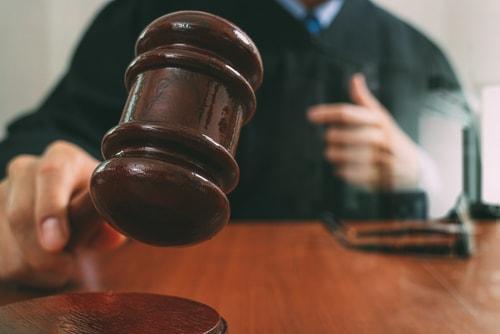Judge Falls Asleep During Criminal Case, Conviction Stands
 When a decision is handed down in a criminal proceeding, both the state and the defendant typically have the right to file an appeal. Appeals filed by defendants nearly always follow a guilty verdict or an unfavorable ruling on a pre-verdict motion, and most are focused on the defendant’s rights to a certain extent. Many such rights have their foundations in the U.S. Constitution and its amendments, such as the right to due process of law and the right be free from unreasonable searches and seizures. Other principles have been established in practice, such as the presumption of innocence until proven guilty beyond a reasonable doubt. But, what happens if the presiding judge falls asleep during the proceedings? Does a jurist’s quick nap constitute a violation of the defendant’s rights so grossly that it should result in a mistrial? An Illinois appeals court recently answered these questions.
When a decision is handed down in a criminal proceeding, both the state and the defendant typically have the right to file an appeal. Appeals filed by defendants nearly always follow a guilty verdict or an unfavorable ruling on a pre-verdict motion, and most are focused on the defendant’s rights to a certain extent. Many such rights have their foundations in the U.S. Constitution and its amendments, such as the right to due process of law and the right be free from unreasonable searches and seizures. Other principles have been established in practice, such as the presumption of innocence until proven guilty beyond a reasonable doubt. But, what happens if the presiding judge falls asleep during the proceedings? Does a jurist’s quick nap constitute a violation of the defendant’s rights so grossly that it should result in a mistrial? An Illinois appeals court recently answered these questions.
Spree Killer on Trial
The trial in question took place in a Whiteside County courtroom in 2014, where the defendant was facing 15 counts of first-degree murder. During the trial, a local police officer testified regarding a video taken by security cameras that placed the defendant near the scene of the crime on the day of the murders. The courtroom was darkened to show the video and when the video ended, it became evident that the judge had fallen asleep.
The defendant’s attorney requested that the judge’s actions be noted in the record, and the observation was noted. On the next day of the trial, the defense motioned for a mistrial on the basis that the judge’s nap. The court rejected the motion, and the defendant was subsequently convicted on four counts of murder. The defense filed for a new trial, but the court refused. Thus, an appeal was filed.
No Reversible Error
On appeal, the defendant claimed that the judge’s falling asleep constituted a per se reversible error and that a new trial was warranted. A divided appeals court disagreed. The appellate panel agreed with the trial court that the judge falling asleep did not affect the proceedings in any way. The jury—not the judge—was the trier of fact in the case, and the judge was not asked to rule on any objections during the video.
The appeals court acknowledged that a judge falling asleep could cause harm to a defendant but the circumstances must be considered. In this case, the evidence against the defendant was "overwhelming" and the judge was not called upon to make evidentiary rulings at any time that he may have been asleep. The appeal was therefore rejected, and the defendant’s conviction stands.
Facing Criminal Charges?
At The The Law Office of Brian J. Mirandola, we are dedicated to helping those who are facing criminal charges. To learn more about how we can assist with your case, contact an experienced Elgin criminal defense attorney today. Call 847-488-0889 for a free consultation.
Sources:
http://www.qconline.com/illinois/judges-sleeping-through-evidence-not-cause-for-new-trial-illinois/article_bc10459d-e391-5421-941b-025b1405c6fc.html
http://www.illinoiscourts.gov/Opinions/AppellateCourt/2017/3rdDistrict/3140659.pdf








